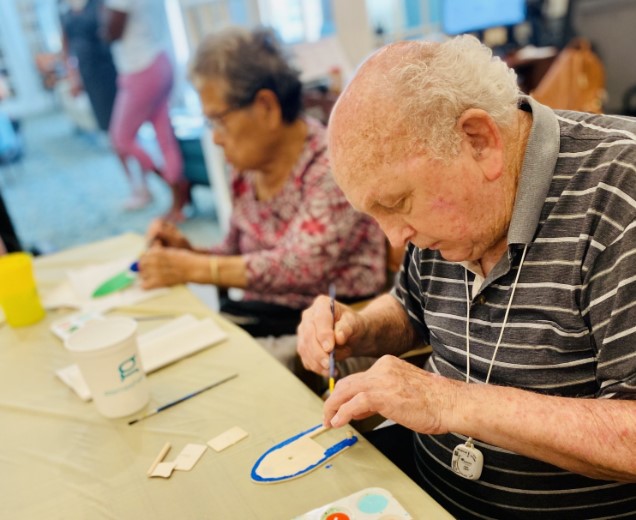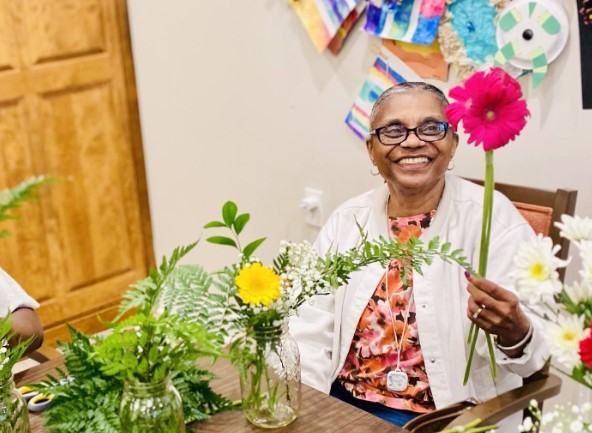It's a common misconception that learning stops after a certain age. However, this couldn't be further from the truth. Seniors in their 70s and beyond have a remarkable capacity to learn new skills, acquire knowledge, and pursue passions that they might not have had time for earlier in life. Embracing lifelong learning can be an incredibly enriching experience, bringing numerous benefits to the lives of older adults.

The Possibility of Lifelong Learning
The human brain has an incredible ability to adapt and change, a phenomenon known as neuroplasticity. This means that even in later years, our brains can form new connections and pathways, making learning new things entirely possible. Whether it’s picking up a new language, learning to play a musical instrument, or exploring new hobbies like painting or writing, the opportunities are endless. Many seniors find joy and satisfaction in discovering new interests and challenging themselves mentally.
The Benefits of Continuing Education
Mental Stimulation and Cognitive Health: Engaging in educational activities keeps the brain active and can help maintain cognitive functions. Studies have shown that continuous learning can reduce the risk of cognitive decline and dementia, promoting overall brain health.
- Emotional Well-being: Learning something new can boost self-esteem and provide a sense of accomplishment. It can also reduce feelings of isolation and depression by keeping the mind engaged and occupied.
- Social Connections: Participating in classes, workshops, or study groups provides opportunities to meet new people and build meaningful relationships. These social interactions are crucial for emotional health and can lead to lasting friendships.
- Purpose and Fulfillment: Having goals and pursuits in later life gives seniors a sense of purpose. Learning new skills or knowledge can be incredibly fulfilling, providing a reason to look forward to each day.
- Physical Health: Some learning activities, such as dance or gardening classes, also promote physical activity. This can improve physical health, increase mobility, and enhance overall well-being.
- Encouraging Lifelong Learning
It’s important to foster an environment where seniors feel encouraged and supported in their learning endeavors. Communities and families can play a vital role in this by offering resources and opportunities for education. Many senior living communities now offer a variety of educational programs, from technology workshops to art classes, making it easier than ever for older adults to continue their educational journey.
Normalizing Lifelong Learning
We must shift our perspective to see lifelong learning as a normal and desirable part of aging. By celebrating the achievements of seniors who embrace learning, we can inspire others to follow suit. Lifelong learning should be seen as a natural and beneficial part of life, regardless of age.
A Senior’s Guide to Lifelong Learning and Personal Growth: Top Tips for Starting Your Journey
Embarking on a journey of lifelong learning and personal growth is a rewarding and fulfilling endeavor. Here are some practical tips to help you get started and make the most of this exciting phase of your life:
Set Clear Goals
- Identify Interests: Reflect on what you’ve always wanted to learn or improve. Whether it’s a new hobby, skill, or subject, knowing what excites you is the first step.
- Make a Plan: Set specific, achievable goals. Break them down into smaller, manageable steps to avoid feeling overwhelmed.
Utilize Available Resources
- Community Programs: Check out local senior centers, libraries, and community colleges for classes and workshops designed for seniors.
- Online Learning: Explore online platforms like Coursera, Udemy, and Khan Academy. Many offer free or discounted courses for seniors.
- Library Resources: Libraries often provide free access to books, audiobooks, and e-books, as well as various educational programs.
Stay Social
- Join Clubs and Groups: Engage with others who share your interests. Joining a book club, gardening group, or art class can be both educational and social.
- Attend Events: Look for local lectures, cultural events, and workshops. These can provide learning opportunities and help you meet new people.
Keep Physically Active
- Exercise Classes: Join exercise classes tailored for seniors, such as yoga, tai chi, or water aerobics. Physical activity can enhance mental sharpness and overall well-being.
- Outdoor Activities: Engage in outdoor activities like walking, hiking, or gardening. These activities can be both mentally stimulating and physically beneficial.
Embrace Technology
- Learn Basic Tech Skills: Take classes on using smartphones, tablets, and computers. Understanding technology can open up new learning avenues and keep you connected with loved ones.
- Explore Apps: Use apps designed for learning and brain exercises. Apps like Duolingo for languages or Lumosity for brain training can be fun and educational.
Practice Mindfulness and Relaxation
- Mindfulness Exercises: Incorporate mindfulness and relaxation techniques into your daily routine. Practices like meditation and deep breathing can improve focus and reduce stress.
- Creative Outlets: Engage in creative activities like painting, writing, or playing a musical instrument. These can be therapeutic and stimulate cognitive function.
Volunteer and Give Back
- Find Volunteer Opportunities: Volunteering can provide a sense of purpose and community. Look for opportunities that align with your interests and skills.
- Mentorship: Share your knowledge and experience with younger generations. Mentoring can be fulfilling and offer new perspectives on learning and growth.
Maintain a Healthy Lifestyle
- Balanced Diet: Eat a balanced diet rich in fruits, vegetables, lean proteins, and whole grains. Good nutrition supports brain health and overall well-being.
- Stay Hydrated: Drink plenty of water throughout the day to stay hydrated and support bodily functions.
- Regular Check-Ups: Keep up with regular medical check-ups and screenings to maintain your health and address any concerns early.
Stay Curious and Open-Minded
- Ask Questions: Cultivate a curious mindset. Don’t hesitate to ask questions and seek out answers.
- Try New Things: Be open to trying new activities and stepping out of your comfort zone. This can lead to unexpected and rewarding experiences.
Celebrate Your Achievements
- Acknowledge Progress: Take time to acknowledge and celebrate your progress, no matter how small. This can boost motivation and self-esteem.
- Reflect on Growth: Regularly reflect on what you’ve learned and how you’ve grown. This can provide a sense of accomplishment and inspire continued learning.






